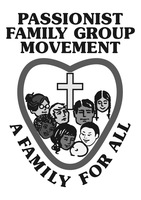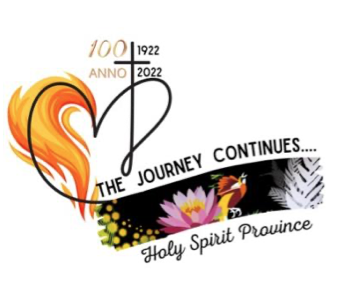Dear Passionist Family Group members and friends,
I thought I would share a brilliant, insightful, and very challenging reflection from last Sunday by Passionist Fr Giltus Mathias CP living in Australia but born and raised in India. He wrote this reflection for the 20th Sunday of Ordinary time.
| “I was home, India, for a few weeks after almost two and half years. I was intrigued that the lectionary in most of the parishes have the word “at that time” at the beginning of every gospel passage. Some of you may remember the Latin term ‘In illo tempore’ to every gospel reading prior to Vatican II. We know the importance of the historical events in the Christian faith, but liturgy is not history; it is a re-enactment of those events in the present, the NOW. |
| The past has great attractions. It has all happened already, and so it is unlikely to disturb us. It is when we are most lazy and self-satisfied that we are most conservative. Everyone is a conservative for an hour or two after dinner. |
| It is strange that in most parts of the world the Christian faith has come to stand for everything that is safe and conservative. As Philip Brooks wrote, “The religion of Jesus has so long been identified with conservatism… that it is startling sometimes to remember that all the conservatives of his own times were against him; that it was the young, free, restless, sanguine, progressive part of the people who flocked to him.” It may be for the same reason that they now flock out of the Church. It has no fire in its belly, no power of prophecy, because it is more interested in conserving the past than in engaging with the world around it. |
| It is dangerous, I believe, to think of faith as something one ‘has’, a possession. If you are in secure possession of it, you are safe; then all you have to do is be careful not to lose it. But faith is something one does. “I have come to bring fire on earth.” What is fire? Is it just some ‘thing’ lying there safely, needing to be protected on all sides? No, it is energy, and it is not safe to have it around. If it makes you feel safe, it is not faith.” |
| Giltus Mathias CP |
Scripture reflection: Twenty-first Sunday in Ordinary Time Year C, 21 August 2022
Those expecting no place at the feast will be offered one. The last shall be first
Lectionary readings
First reading: Isaiah 66:18-21
Responsorial Psalm: Ps 116(117)
Second reading: Hebrews 12:5-7, 11-13
Gospel: Luke 13:22-30
Link to readings – click here
This Sunday’s scripture bears testimony to the universal outreach of the Lord. Our God is one who desires to gather all people, from far and wide – north, south, east and west – and from lands that have never heard of the Lord.
God also wishes to reach those who are considered last, those who are overlooked. Today’s readings reveal a Lord with priorities that differ from the norm.
The ones anticipating a place at the banquet will lose it, but those expecting no place at the feast will be offered one (Gospel). Those who have never seen or heard of God’s glory will be the ones to see it (First Reading). Those experiencing suffering are to remember that they are that they are God’s children and not forgotten (Second Reading).
This coming week: Please keep in your mind and hearts – Orewa Parish who this weekend officially begin with the set-up of Passionist Family Groups. Thanks to all those who have spoken at masses over the last four weeks to enthuse and encourage the locals.
I’ll be in Auckland Wednesday 17th August to meet both parish and group coordinators for East Coast Bays and Helensville – maybe Orewa representatives
On Thursday August 18 I’ll be meeting with St Heliers, Howick and Pt Chev parish and group coordinators at St Heliers. Friday I hope to catchup with P from East Coast Bays with Lindsay and Colin Brand.
Saturday August 20th preparation and meet with new Coordinators for Orewa parish and speak at the 5.30pm Mass.
Sunday August 21st will speak at the 8.30am and 10.30am Masses followed by the set up and Fr. Raphael PP has been great to work with and is very supportive of all we have done to date. Fly home on Monday morning. Keep us all in your thoughts and prayer.
“The gift of difference” The International Day Commemorating the Victims of Acts of Violence Based on Religion or Belief on 22 August
This day reminds us of the need to live up to our Catholic tradition, built on faith in Jesus, that encourages respect and love for others.
Reflective religious believers often feel shame at the gap between the message of their founders and the behaviour of their followers.
Their founders emphasise peace and harmony between peoples, but their followers often act violently in the name of their religion. We need think only of the Crusades in which the Christian knights had Christ’s cross on their shields, the killings of Muslims by Hindus, of one group of Muslims and Christians by other groups, and the naming and blessing of a United States warship as Corpus Christi. Religious beliefs are often co-opted to legitimate violence.
It is not surprising that acts of violence associated with religious belief have multiplied in the wars and disturbances of recent years. Wars in the middle East have exacerbated conflict between different groups of Muslims and have led to Christians being driven from their homes and being killed in churches. Groups inspired by a violent version of Islam have also proliferated and tried to overthrow more moderate groups. These have also attacked Christians whom they identify with the United States. When faith and politics are joined the result is often to corrupt faith and to make politics more violent.
It would be too simple, however, to conclude that religious beliefs cause violence. They are one of many factors, the most fundamental of which is the difference between different groups. Difference often leads to suspicion, hostility and ultimately to violence. This difference can be expressed in divergent cultures, different races or tribes, different political or religious beliefs, and sometimes in gender difference.
When these differences are joined to divergent religions they can spark violence. In Nigeria, for example, Islamic groups have attacked Christian churches and particularly women in those churches. The root of difference and hostility, however, is not religious belief but the difference between a herder and a pastoralist way of life, in a world where the shrinking availability of suitable land brings them into conflict. Difference of religion can add fuel to this economic fire. Difference of race and culture in developed nations can also lead to violence and discrimination against Muslim people. Religious difference can intensify prejudice but is only one factor in it.
The heart of responding to religious-based violence is twofold. It is for people with religious faith to commend the noble version of their own belief that corresponds to their founder’s vision. It is also for them to attribute to the followers of other religions the most noble version of their belief that corresponds to the founder’s vision. This counteracts the natural prejudice by which we think the best of ourselves and the worst of others. This is the root of much violence. As we become aware of our own prejudices and free ourselves from them, we shall also become interested in difference rather than fearful of it. This will make us more inclined to seek and enjoy the company of people whose religious beliefs differ from our own and consequently to relate to them as friends, not enemies.
The Catholic tradition, built on faith in Jesus, encourages respect and love for others no matter whether they are from other religious traditions or none. In our accompaniment of one another we respect each other’s beliefs and encourage a way of living in which we value one another and see our differences as a gift.
– Fr Andrew Hamilton SJ
This link below is a beautiful hymn based on a prayer written by Pope Francis to accompany his encyclical Laudato Si.
https://www.youtube.com/watch?v=1E7ZvhCrLsg
Pease remember in your thoughts and prayer:
- Paul Darbyshire (Linda and family)
- Boyd Dunlop (Judith and family)
- Wilma Schimanski and family
- Ross Darbyshire and family
- Julie Neve her two children, family and friends.
- Your own intentions
Humour:
- “How do you follow Will Smith in the snow?” “You follow the fresh prints.”
- “If April showers bring May flowers, what do May flowers bring?” “Pilgrims.”
- “I thought the dryer was shrinking my clothes. Turns out it was the refrigerator all along.”
- “What do you call a factory that makes okay products?” “A satisfactory.”
- “Dear Math, grow up and solve your own problems.”
- “What did the janitor say when he jumped out of the closet?” “Supplies!”
- “Have you heard about the chocolate record player? It sounds pretty sweet.”
- “What did the ocean say to the beach?” “Nothing, it just waved.”
- “Why do seagulls fly over the ocean?” “Because if they flew over the bay, we’d call them bagels.”
- “I only know 25 letters of the alphabet. I don’t know y.”

